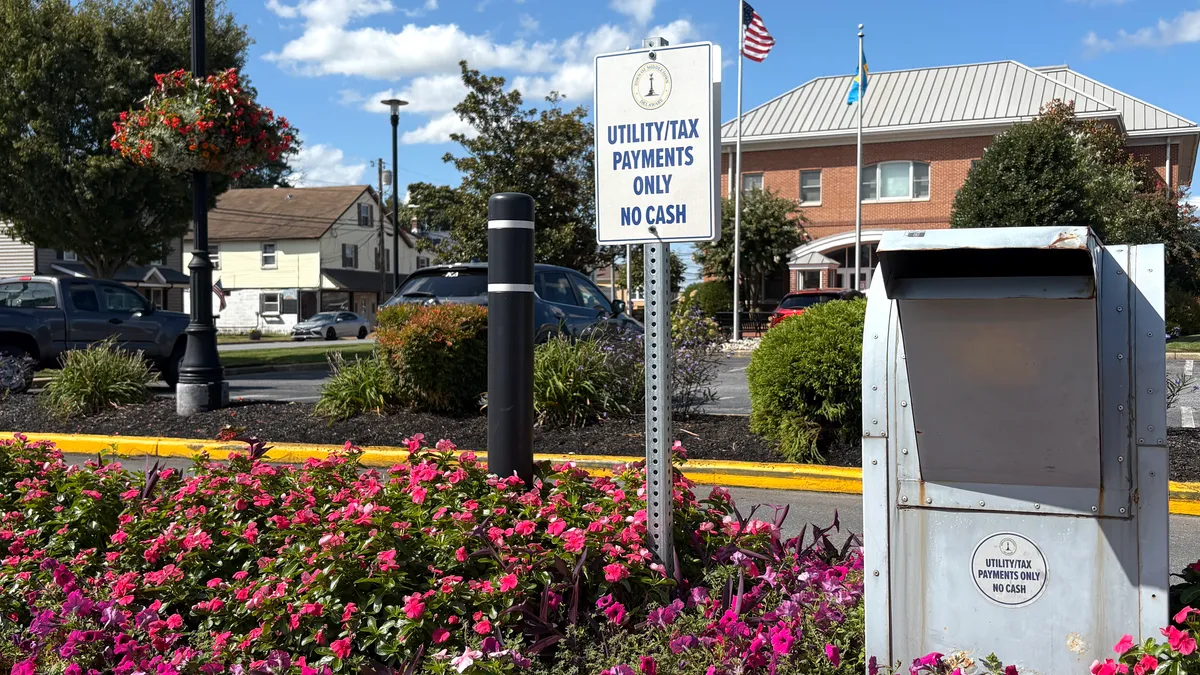
Trade organizations representing landlords and housing business owners in New Castle County have asked a judge to stop the implementation of tax changes that were recently authorized by lawmakers in response to outcry over reassessed property values.
In a lawsuit filed Sept. 12 in Delaware’s Chancery Court, the group of plaintiffs argue that a bill that allows New Castle County school districts to charge different tax rates for residential versus commercial properties hurts landlords, their tenants and violates the state’s constitution.
Lawmakers passed the legislation, titled House Bill 242, in a special legislative session in August responding to complaints from residential property owners, after the state’s three counties reassessed property tax valuations for the first time in decades.
The bill essentially allows school districts to calculate separate tax rates for residential and commercial properties and, in the process, shift more of the reassessed tax burden from residential to commercial properties.
The plaintiffs in the lawsuit claim it is causing property tax bills on their housing complexes to go up unjustly and will trigger loan defaults, as well as missed business opportunities, and ultimately will fall on their income-limited tenants.
What did districts do? You’ve got a new school tax rate. Here’s how each New Castle County district ‘split’ levies
How Delaware got here
This lawsuit was ultimately prompted by a separate Chancery Court case five years ago that mandated this entire reassessment process. Before this most recent reassessment, the state’s three counties had not reassessed property values used for taxation in decades.
This led to a judge ruling in 2020 that the outdated values see some taxpayers get an unfair discount while others pay taxes on a larger share of their property’s actual worth, and that those inequities violate the state constitutional requirement that property owners be taxed equally.
And so, counties have been in a multi-year process of assessing updated property valuations, to then couple that with school and county taxing rates to calculate an individual property owner’s tax bill.
That process was recently completed in New Castle County and caused a great deal of resident upset. This is partially because it shifted a heavier tax burden onto residential properties as opposed to commercial properties, due to changes in the tax base since the last reassessment.
For many homeowners, it sent values and school bills up. Meanwhile, nonresidential assessments by Tyler Technologies tended to increase at a much lower rate. That meant many – though not all – businesses saw a tax break.
Under pressure from angry homeowners receiving their new tax bills this summer, lawmakers called a special session in August. One of multiple reforms flowing from that was a House bill authorizing New Castle County school districts to charge different tax rates on residential versus commercial property, referred to as split rates.
It also allowed the county a do-over on this year’s taxes to apply those split rates, a process that is ongoing.
Recent: Delaware Gov. Meyer signs bill to let school districts split tax rates in New Castle County
Supporters said splitting rates is a way of getting closer to the pre-reassessment tax share between residential and commercial properties and would give relief to residential taxpayers.
The idea isn’t novel. According to lawmakers, Delaware has longstanding common law – since codified in special session – recognizing the authority of Delaware counties and cities to separately tax different classes of property if the classification is “reasonable.”
Wilmington city government and New Castle County, whose tax bills use the same valuations but different rates as school districts, already had authority to split tax rates and did so after the reassessment. According to the county, it looked to ease homeowner tax burden by holding them at about 69% of base, not the post-assessment 75%.
The bill allowing school districts similar authoritiy came along with other reforms allowing counties to offer payment plans with protections, as well as direct cash rebates on appeals.
Another reform: Bill for payment plans for Delaware school taxes signed into law
Housing associations cry foul
The plaintiffs claim that such a redistribution is illegal, unfair and amounts to a “hasty attempt to quell political backlash.”
Those plaintiffs are the Delaware Apartment Association, Newark Property Association, Delaware Hotel & Lodging Association and First State Manufactured Housing Association. Underpinning their complaint is that their properties, which include apartments with more than four units and mobile home lots, are considered commercial properties.
Their lawsuit characterizes the split-rate shift as one from “wealthy and upper-middle-class homeowners” to tenants renting the roof above their heads.
It says reassessed tax bills already hit these types of commercial property with increases, and the split rates will exacerbate it, leading to commercial loans forced into default, expansions and renovations stopped – and higher rents for tenants.
School boards have decreased residential rates while nearly doubling nonresidential tax rates since the change. And, instead of restoring the pre-reassessment share of commercial versus residential tax burden, it has shifted a greater burden onto commercial properties, the lawsuit claims.
The complaint states that non-residential properties accounted for 31% of assessed value pre-reassessment in Christina School District but will bear 45% of the tax burden now. In Brandywine School District, the share of tax burdens on apartments went from 4.5 to 6.5%. It also cites examples of specific housing complex tax bills going up two and three-fold.
Where the landlord lawsuit stands
The plaintiffs claim this bill all-together violates rules in the Delaware constitution that generally require uniformity in taxation, is unconstitutional as a retroactive tax increase, and that it circumvents the statutory requirement that tax rate increases be approved by a referendum of voters.
The lawsuit seeks expedited hearings, a restraining order barring further implementation of House Bill 242 and, ultimately, a declaration that the bill is unconstitutional.
The defendants include the state, Governor Matt Meyer, New Castle County Executive Marcus Henry, the county’s chief financial officer and the five school districts in New Castle County.
Meyer declined to comment on the litigation.
Meanwhile, the tax situation in individual school districts and counties are all in somewhat different phases.
Read this to learn more about New Castle County.
Additionally, the state has set up a special committee discuss further changes to the taxation system.
Recent: When are new property tax bills coming in New Castle County? FAQ on Delaware tax changes
Reporting from Kelly Powers and Shane Brennan contributed to this article.



